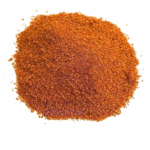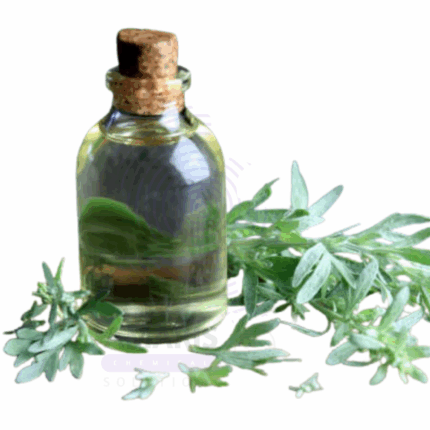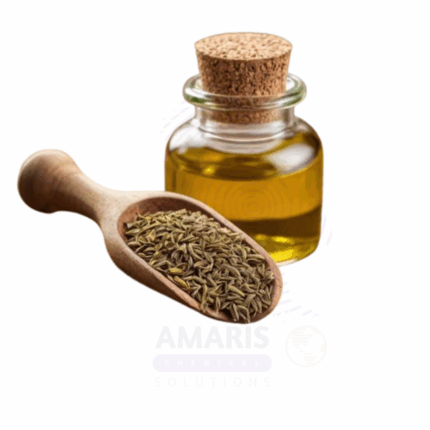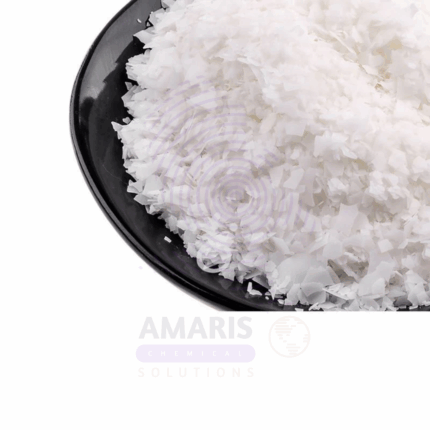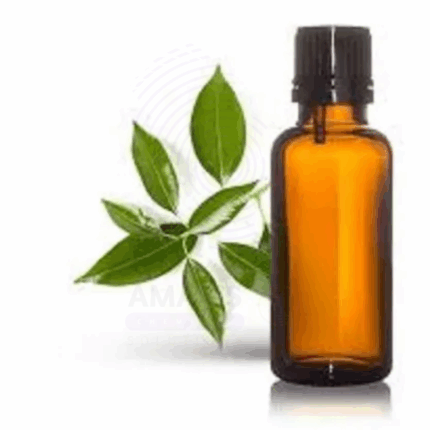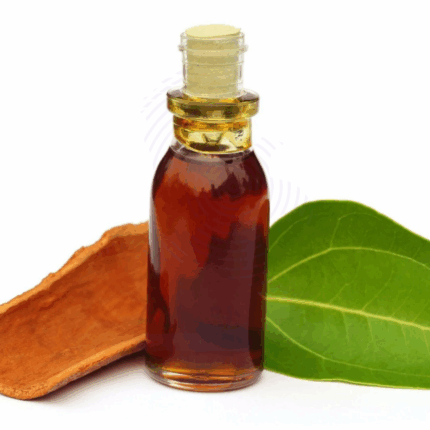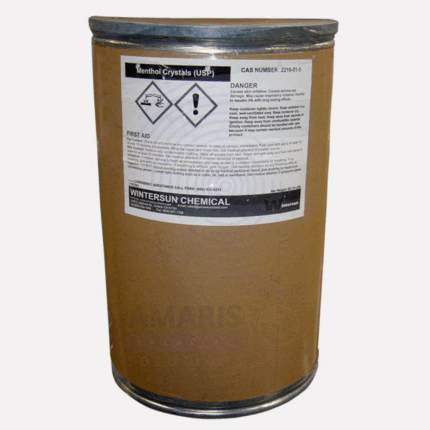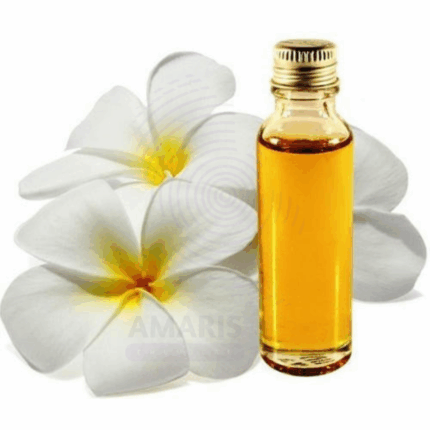Back to products
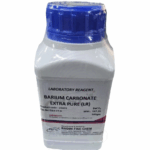

Barium Carbonate Extra Pure
$ 18.00 Original price was: $ 18.00.$ 17.78Current price is: $ 17.78.
Clove Bud Oil
Whatsapp Order
Clove Bud Oil is a potent essential oil obtained through steam distillation of the flower buds of the Syzygium aromaticum (formerly Eugenia caryophyllata) tree. Renowned for its strong, spicy, and warm aroma, it is rich in eugenol — a powerful natural compound with significant antiseptic, analgesic, and antimicrobial properties.
Used historically in dental care, traditional medicine, and perfumery, Clove Bud Oil is now widely applied in cosmetics, oral care, food flavoring, wellness, and natural cleaning products. It is also valued in aromatherapy for its grounding and energizing effects.
Description
Table of Contents
Toggle
Clove Bud Oil
Primary Uses
- Cosmetics and Personal Care
- Used in creams, balms, and ointments for its warming and antimicrobial qualities
- Added to toothpastes and mouthwashes for oral hygiene, gum care, and breath freshening
- Blended into soaps, deodorants, and shampoos for its cleansing and purifying action
- Incorporated into massage oils for soothing muscle tension and fatigue
- Used in formulations for acne-prone and oily skin due to its antiseptic properties
- Pharmaceuticals
- Utilized as a topical analgesic for toothaches and muscle pain
- Commonly included in antiseptic and disinfectant preparations
- Used in throat sprays, lozenges, and syrups for sore throat and cough relief
- Applied in dental anesthetic formulations
- Aromatherapy & Wellness
- Diffused for its stimulating and warming effects on the mind and body
- Included in blends aimed at boosting immunity and respiratory wellness
- Used in meditation and grounding blends to relieve mental fatigue
- Food and Beverage Industry
- Used as a flavoring agent in baked goods, pickles, spice blends, and beverages
- Common in holiday recipes and traditional spice mixes (e.g., pumpkin spice, chai)
- Used in small amounts for food preservation and natural antimicrobial action
- Cleaning and Household Products
- Added to natural surface cleaners for antibacterial and deodorizing power
- Used in air fresheners, fabric sprays, and closet sachets for its warm, spicy scent
Secondary Uses
- Pet Care Products
- Occasionally used in flea-repelling sprays (in safe concentrations and with caution)
- Craft and DIY Products
- Used in homemade candles, potpourri, and essential oil blends
- Popular in DIY mouthwash, salves, and natural deodorants
KEY PRODUCT FEATURES
1. Basic Identification Attributes
- Botanical Name: Syzygium aromaticum / Eugenia caryophyllata
- Common/Trade Name: Clove Bud Oil
- INCI Name: Eugenia Caryophyllus Bud Oil
- CAS Number: 8000-34-8
- HS Code: 3301.29
- Synonyms: Clove Oil, Eugenia Oil, Clove Essential Oil
2. Physical & Chemical Properties
- Physical State: Liquid essential oil
- Color & Odor: Pale yellow to brown; strong, spicy, warm, and woody aroma
- Solubility: Insoluble in water; soluble in alcohol and fixed oils
- Refractive Index: 1.527 – 1.535
- Specific Gravity: 1.035 – 1.070
- Main Components: Eugenol, beta-caryophyllene, eugenyl acetate
3. Safety & Hazard Attributes
- GHS Classification: May cause skin irritation and sensitization
- Toxicity: Low when properly diluted; avoid internal use unless food-grade certified
- Exposure Limits: Refer to Safety Data Sheet (SDS)
- Allergen Information: Contains eugenol, a known allergen
4. Storage & Handling Attributes
- Storage Conditions: Store in a cool, dry, dark area away from direct sunlight
- Container Type: Amber glass bottles or food-safe stainless steel drums
- Shelf Life: 24 to 36 months under optimal storage conditions
- Handling Precautions: Use gloves and avoid direct contact with skin or eyes
5. Regulatory & Compliance Attributes
- Compliant with IFRA standards for safe use in fragrances
- Produced in GMP-compliant manufacturing environments
- Approved for use in cosmetics, food, and pharmaceuticals under regional regulations
6. Environmental & Health Impact
- Biodegradability: Biodegradable under typical environmental conditions
- Ecotoxicity: Low aquatic toxicity in standard dilution
- Bioaccumulation: Not expected to bioaccumulate
SAFETY HANDLING PRECAUTIONS
Safety Handling Precautions
- PPE Required: Gloves, protective eyewear, and mask during handling in bulk
- Handling Guidelines: Avoid vapor inhalation; work in a well-ventilated space
First Aid Measures
- Inhalation: Move to fresh air; seek medical attention if respiratory discomfort occurs
- Skin Contact: Wash with soap and water; discontinue use if irritation appears
- Eye Contact: Rinse thoroughly with water for at least 15 minutes; get medical help
- Ingestion: Do not induce vomiting; seek emergency medical care immediately
Firefighting Measures
- Fire Hazards: Flammable liquid and vapor
- Extinguishing Media: Dry chemical powder, foam, carbon dioxide
- Special Precautions: Use full protective gear and self-contained breathing apparatus
- Hazardous Combustion Products: Carbon monoxide, carbon dioxide, aromatic fumes
Related products
Abis Sibirica Oil
Abis Sibirica Oil, commonly referred to as Siberian Fir Needle Oil, is a premium-grade essential oil obtained through steam distillation of the needles and twigs of the Abies sibirica tree, native to Siberia and parts of Northern Europe. This oil is renowned for its crisp, woody, and resinous aroma with delicate balsamic undertones. Rich in natural compounds such as bornyl acetate, alpha-pinene, and limonene, Abies Sibirica Oil exhibits powerful antimicrobial, anti-inflammatory, and expectorant properties.
Used traditionally in wellness therapies and natural medicine, this oil supports respiratory comfort, emotional balance, and muscle relief. In modern applications, it serves as a natural fragrance and active ingredient in cosmetics, personal care products, spa treatments, and eco-friendly cleaning solutions. Its invigorating scent and therapeutic versatility make it a staple in essential oil formulations across multiple industries.
Absinth Oil
Absinth Oil, also known as Wormwood Essential Oil, is a highly aromatic essential oil extracted through steam distillation from the leaves and flowering tops of the Artemisia absinthium plant. Native to Europe and Asia and known historically for its use in absinthe liqueur, this oil features a sharp, bitter, herbaceous aroma with a green and slightly medicinal edge. Rich in thujone, chamazulene, and other bioactive compounds, Absinth Oil is known for its antimicrobial, anti-inflammatory, and digestive-stimulating properties.
While traditionally associated with herbal medicine and ritualistic use, modern applications of Absinth Oil span personal care, pharmaceuticals, and natural pest repellents. Due to its intensity and potential toxicity in high concentrations, it is used in very controlled amounts in fragrance and therapeutic blends. It is valued for its distinctive scent and potent botanical properties, particularly in cosmetics, aromatherapy, and natural cleaning formulations.
Ajowan oil
Ajowan Oil, also known as Ajwain Oil or Trachyspermum Ammi Oil, is an essential oil obtained by steam distillation of the seeds of the Trachyspermum ammi plant. With a strong, pungent, thyme-like aroma, Ajowan Oil is rich in thymol—a powerful compound known for its antiseptic, antimicrobial, and digestive properties. Traditionally used in Ayurvedic and Unani medicine, Ajowan Oil is valued today across food preservation, pharmaceuticals, and natural personal care formulations.
This oil exhibits broad-spectrum antimicrobial effects and is widely used in therapeutic balms, oral care, digestive tonics, and antiseptic blends. It also finds applications in fragrance formulations that benefit from its spicy, herbal character. Its potent biological activity makes it effective in natural pest control and disinfectant preparations.
Almond Wax
Almond Wax is a natural, plant-based wax derived from the hydrogenation of almond oil (Prunus amygdalus dulcis). It is a creamy to white, semi-solid wax with a mild, nutty scent and excellent emollient properties. Almond Wax is rich in fatty acids and has a smooth, soft texture, making it ideal for use in cosmetic, personal care, and candle formulations.
Due to its gentle consistency, skin-friendly profile, and moisturizing capabilities, Almond Wax is widely used in body butters, balms, lip care products, massage bars, and artisan soaps. It functions as a natural alternative to petroleum-based waxes and provides structure, viscosity, and glide to formulations. It also finds application in soft wax blends for natural candle products.
Camphor White Oil
Camphor White Oil is a steam-distilled essential oil obtained from the wood of the Camphor tree (Cinnamomum camphora), primarily from the white fraction, which is rich in 1,8-cineole, camphor, and linalool. This fraction is the most commonly used in aromatherapy and topical preparations due to its potent but relatively balanced composition compared to brown or yellow fractions. The oil has a sharp, penetrating aroma with a cooling, medicinal character.
Traditionally used in topical pain relief, respiratory care, and soothing balms, Camphor White Oil is known for its anti-inflammatory, decongestant, antiseptic, and stimulating effects. It is widely used in cosmetics, personal care, pharmaceuticals, and aromatherapy formulations.
Cassia Oil
Cassia Oil is a potent essential oil steam-distilled from the bark of Cinnamomum cassia, commonly known as Chinese cinnamon. It carries a strong, spicy, and warm aroma similar to true cinnamon but is more pungent and intense. Its reddish-brown to yellow appearance and high cinnamaldehyde content give it powerful antimicrobial, antifungal, and warming properties. Cassia Oil is used across various industries including food flavoring, pharmaceuticals, cosmetics, aromatherapy, and household products. Due to its strength, it is typically used in diluted concentrations.
Menthol crystals
Menthol Crystals are natural organic compounds derived from peppermint or other mint oils, presenting as clear or white crystalline solids with a strong, cooling mint aroma. They possess analgesic, antiseptic, and flavoring properties. Widely used in pharmaceuticals, cosmetics, food, and personal care products, menthol crystals provide a refreshing cooling sensation and fragrance, enhancing product efficacy and consumer appeal.
Michelia Flower Oil
Michelia Flower Oil is an essential oil extracted through steam distillation or solvent extraction from the flowers of Michelia species (e.g., Michelia champaca, Michelia alba). Known for its rich, floral, and slightly fruity aroma, it is widely used in perfumery, aromatherapy, and traditional medicine. The oil is prized for its therapeutic properties and as a natural fragrance ingredient.


 Preservatives(food)
Preservatives(food) Flavor Enhancers
Flavor Enhancers Acidulants
Acidulants Sweeteners
Sweeteners Antioxidants
Antioxidants Colorants(food)
Colorants(food) Nutraceutical Ingredients (food)
Nutraceutical Ingredients (food) Nutrient Supplements
Nutrient Supplements Emulsifiers
Emulsifiers
 Collectors
Collectors Dust Suppressants
Dust Suppressants Explosives and Blasting Agents
Explosives and Blasting Agents Flocculants and Coagulants
Flocculants and Coagulants Frothers
Frothers Leaching Agents
Leaching Agents pH Modifiers
pH Modifiers Precious Metal Extraction Agents
Precious Metal Extraction Agents
 Antioxidants(plastic)
Antioxidants(plastic) Colorants (Pigments, Dyes)
Colorants (Pigments, Dyes) Fillers and Reinforcements
Fillers and Reinforcements Flame Retardants
Flame Retardants Monomers
Monomers Plasticizers
Plasticizers Polymerization Initiators
Polymerization Initiators Stabilizers (UV, Heat)
Stabilizers (UV, Heat)
 Antifoaming Agents
Antifoaming Agents Chelating Agents
Chelating Agents Coagulants and Flocculants
Coagulants and Flocculants Corrosion Inhibitors
Corrosion Inhibitors Disinfectants and Biocides
Disinfectants and Biocides Oxidizing Agents
Oxidizing Agents pH Adjusters
pH Adjusters Scale Inhibitors( water)
Scale Inhibitors( water)
 Antioxidants(cosmetic)
Antioxidants(cosmetic) Emollients
Emollients Fragrances and Essential Oils
Fragrances and Essential Oils Humectants
Humectants Preservatives
Preservatives Surfactants(cosmetic)
Surfactants(cosmetic) Thickeners
Thickeners UV Filters
UV Filters
 Fertilizers
Fertilizers Soil Conditioners
Soil Conditioners Plant Growth Regulators
Plant Growth Regulators Animal Feed Additives
Animal Feed Additives Biostimulants
Biostimulants Pesticides (Herbicides, Insecticides, Fungicides)
Pesticides (Herbicides, Insecticides, Fungicides)
 Active Pharmaceutical Ingredients (APIs)
Active Pharmaceutical Ingredients (APIs) Excipients
Excipients Solvents(pharmaceutical)
Solvents(pharmaceutical) Antibiotics
Antibiotics Antiseptics and Disinfectants
Antiseptics and Disinfectants Vaccine Adjuvants
Vaccine Adjuvants Nutraceutical Ingredients (pharmaceutical)
Nutraceutical Ingredients (pharmaceutical) Analgesics & Antipyretics
Analgesics & Antipyretics
 Analytical Reagents
Analytical Reagents Solvents(lab)
Solvents(lab) Chromatography Chemicals
Chromatography Chemicals Spectroscopy Reagents
Spectroscopy Reagents microbiology-and-cell-culture-reagents
microbiology-and-cell-culture-reagents Molecular Biology Reagents
Molecular Biology Reagents Biochemical Reagents
Biochemical Reagents Inorganic and Organic Standards
Inorganic and Organic Standards Laboratory Safety Chemicals
Laboratory Safety Chemicals Specialty Laboratory Chemicals(Special Laboratory Equipment)
Specialty Laboratory Chemicals(Special Laboratory Equipment)
 Demulsifiers
Demulsifiers Hydraulic Fracturing Fluids
Hydraulic Fracturing Fluids Scale Inhibitors(oil)
Scale Inhibitors(oil) Surfactants(oil)
Surfactants(oil) Drilling Fluids
Drilling Fluids
 Dyes and Pigments
Dyes and Pigments Bleaching Agents
Bleaching Agents Softening Agents
Softening Agents Finishing Agents
Finishing Agents Antistatic Agents
Antistatic Agents
 Admixtures
Admixtures Waterproofing Agents
Waterproofing Agents Sealants and Adhesives
Sealants and Adhesives Curing Compounds
Curing Compounds Concrete Repair Chemicals
Concrete Repair Chemicals Anti-Corrosion Coatings
Anti-Corrosion Coatings
 Surfactants(cleaning)
Surfactants(cleaning) Builders
Builders Enzymes
Enzymes Solvents (Cleaning)
Solvents (Cleaning) Fragrances
Fragrances
 Electronic Chemicals
Electronic Chemicals Catalysts
Catalysts Lubricants
Lubricants Photographic Chemicals
Photographic Chemicals Refrigerants
Refrigerants Automotive chemicals
Automotive chemicals Pyrotechnic Chemicals
Pyrotechnic Chemicals
 Biodegradable Surfactants
Biodegradable Surfactants Bio-based Solvents
Bio-based Solvents Renewable Polymers
Renewable Polymers Carbon Capture Chemicals
Carbon Capture Chemicals Wastewater Treatment Chemicals
Wastewater Treatment Chemicals
 Pigments
Pigments Solvents(paint)
Solvents(paint) Specialty Coatings
Specialty Coatings Binders/Resins
Binders/Resins Additives
Additives Driers
Driers Anti-Corrosion Agents
Anti-Corrosion Agents Functional Coatings
Functional Coatings Application-Specific Coatings
Application-Specific Coatings
 Fresh Herbs
Fresh Herbs Ground Spices
Ground Spices Whole Spices
Whole Spices Spice Blends
Spice Blends Dried Herbs
Dried Herbs
 Leavening Agents
Leavening Agents Dough Conditioners
Dough Conditioners Flour Treatments
Flour Treatments Fat Replacers
Fat Replacers Decoratives
Decoratives Preservatives(baking)
Preservatives(baking)
 Plasticizers & Softeners
Plasticizers & Softeners Reinforcing Agents
Reinforcing Agents Adhesion Promoters
Adhesion Promoters Vulcanizing Agents
Vulcanizing Agents Antidegradants
Antidegradants Blowing Agents
Blowing Agents Fillers & Extenders
Fillers & Extenders Accelerators & Retarders
Accelerators & Retarders
